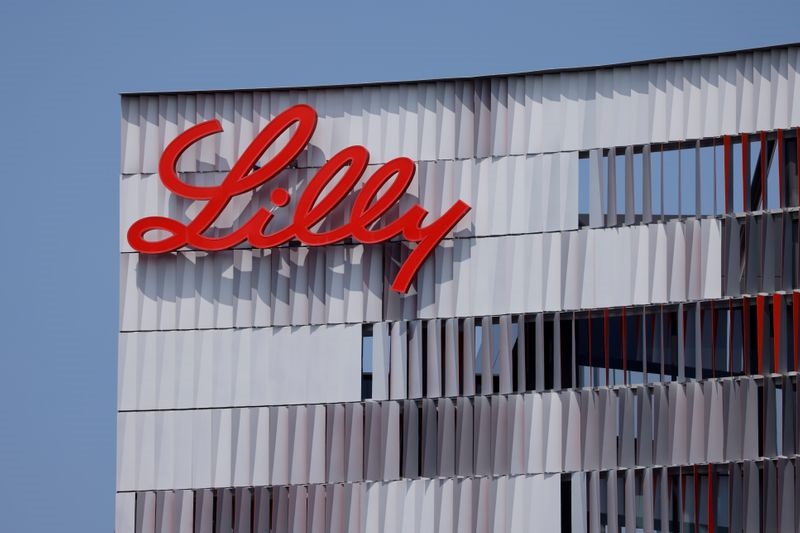On Thursday, Eli Lilly (NYSE:LLY)'s weight loss drug Zepbound showed superior results over competitor Novo Nordisk (NYSE:NVO)'s Wegovy in a head-to-head clinical trial. The pharmaceutical giant, with a market capitalization of $745 billion and impressive year-to-date returns of 43%, continues to strengthen its position in the weight loss market.
According to InvestingPro data, Eli Lilly maintains a strong financial health score and operates with an impressive 81% gross profit margin. According to Bernstein research, patients with obesity taking Zepbound experienced significantly greater weight loss after 72 weeks compared to those on Wegovy. Zepbound led to an average body weight reduction of 20.2%, while Wegovy saw a 13.7% decrease.
The study, known as SURMOUNT-5, also revealed that 31.6% of participants on Zepbound achieved more than 25% body weight loss, doubling the 16.1% rate of those taking Wegovy. In terms of absolute weight loss, Zepbound users lost an average of 22.8 kilograms versus 15.0 kilograms for those on Wegovy, marking a 47% relative difference between the two drugs.
The trial results confirmed earlier data from the SURMOUNT-1 and STEP-1 trials, which had set expectations for these outcomes. The analyst from Bernstein highlighted that the data reinforces the view of Zepbound as a superior treatment option, which could benefit Eli Lilly in future negotiations with payers for broader access to the drug.
The positive outcome for Zepbound comes as the industry anticipates Novo Nordisk's CagriSema trial results, expected before the end of the year. The upcoming trial has projected weight loss figures in the vicinity of 25%. This latest development is seen as a boost for Eli Lilly as they aim to expand their presence in the obesity treatment market. With revenue growth of 27% in the last twelve months, Eli Lilly demonstrates strong momentum.
For deeper insights into Eli Lilly's financial health and growth prospects, including 16 additional ProTips and comprehensive valuation metrics, visit InvestingPro.
In other recent news, Eli Lilly has reported a significant 42% increase in third-quarter revenue, primarily driven by its diabetes and cancer drugs, Mounjaro and Zepbound, which surpassed $3 billion.
The company's earnings per share also rose to $1.18 from $0.10 in the same quarter the previous year. Eli Lilly has revised its 2024 revenue guidance upwards to between $45.4 billion and $46 billion, reflecting an anticipated 50% growth in the fourth quarter. However, Erste Group has downgraded Eli Lilly's stock rating from Buy to Hold due to concerns about the company's inventory and receivables ratios in relation to its sales.
Truist Securities has slightly reduced its stock price target for Eli Lilly from $1,033 to $1,029, while maintaining a Buy rating, citing sustained demand for treatments for type 2 diabetes and obesity as key growth drivers. In addition, Eli Lilly has achieved new U.S. approvals for Ebglyss and Kisunla, as well as positive study data for tirzepatide and donanemab, which are among the company's recent key pipeline achievements.
This article was generated with the support of AI and reviewed by an editor. For more information see our T&C.
